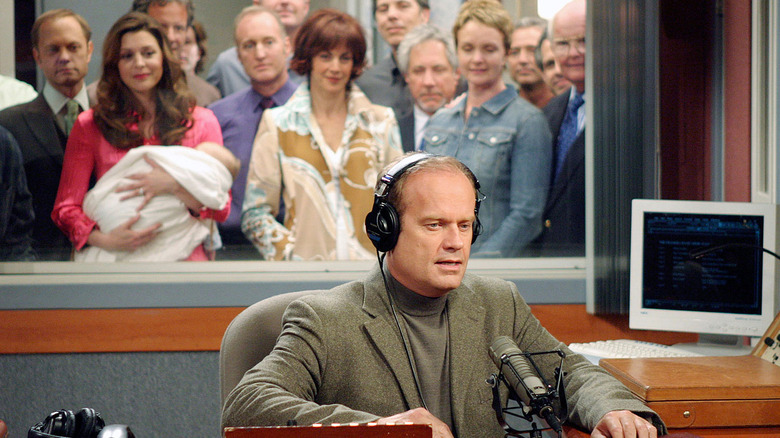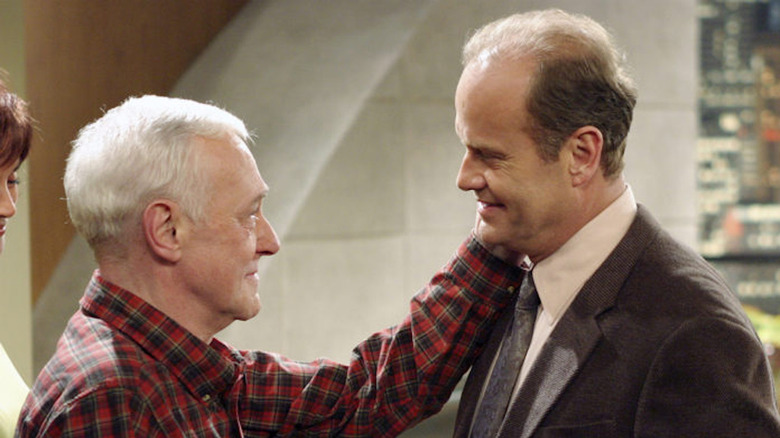The Original Idea For Frasier Would Have Completely Abandoned The Cheers Universe
Spinoffs of wildly successful sitcoms are far from guaranteed rainmakers. For every "The Jeffersons" or "Maude," there's an "AfterMASH" or a "Joey."
Figuring out what television viewers want from the continuing adventures of a character they enjoyed on one of their favorite shows is guesswork. The ones that work tend to be about peripheral figures who weren't fully fleshed out in their origin series. We adored Matthew LeBlanc's struggling actor Joey on "Friends," but he was a sitcom archetype bereft of psychological depth. Also, he was a lovable loser in an ensemble show; foregrounding his inability to get his big break in Hollywood made him kind of pathetic.
When it comes to great spinoffs, "Frasier" might be the gold standard (notwithstanding its lackluster reboot currently airing on Paramount+). On "Cheers," Kelsey Grammer's snooty psychiatrist was, following Shelly Long's departure from the series, primarily a hyper-intellectual foil for the less sophisticated employees and regulars of the Boston watering hole. It wasn't until the series' final season, when Frasier's wife Lilith left him for another man, that the character acquired an intriguingly tragicomic dimension. There was more to Frasier's story, and we wanted to go along for the ride.
And yet, if the series' creators had their way initially, Frasier Crane's journey would've ended with the last episode of "Cheers."
The Frasier-less road not taken
According to interviews on "Behind the Couch: The Making of Frasier" (a featurette included on the first season DVD of the series), Grammer and the show's creators (David Angell, Peter Casey, and David Lee) had a radically different idea for Grammer's first post-"Cheers" series.
Grammer, who struck a deal with the aforementioned trio to produce a new show during the eighth season of "Cheers," was keen to play a wheelchair-utilizing, Malcolm Forbes-esque media magnate. The show's central hook would've been Grammer's character's interactions with his Hispanic, "street-smart" live-in nurse. You have to wonder if this creative collective had its eye on rising star John Leguizamo at the time. He might've made an explosively funny bantering mate with Grammer.
We'll have to keep wondering because Paramount Television immediately shot the pitch down. The execs wanted more of Frasier Crane, and, it turned out, viewers agreed. The "Frasier" camp's main objection to spinning the erudite psychiatrist off into his own series was the fear that nothing could live up to "Cheers." Their genius was plopping the character into a concoction that straddled the madcap workplace fun of "WKRP in Cincinnati" and the apartment-based farce of "The Jeffersons."
As for their first concept, it never came to fruition on network television, but it's possible this specific culture-clash notion influenced Olivier Nakache and Éric Toledano's "The Intouchables," in which a wealthy white paraplegic forms an unlikely bond with his Black caregiver. It was an international box-office hit (and spawned an American remake starring Kevin Hart and Bryan Cranston), which suggests Grammer and his associates might've been on to something.

